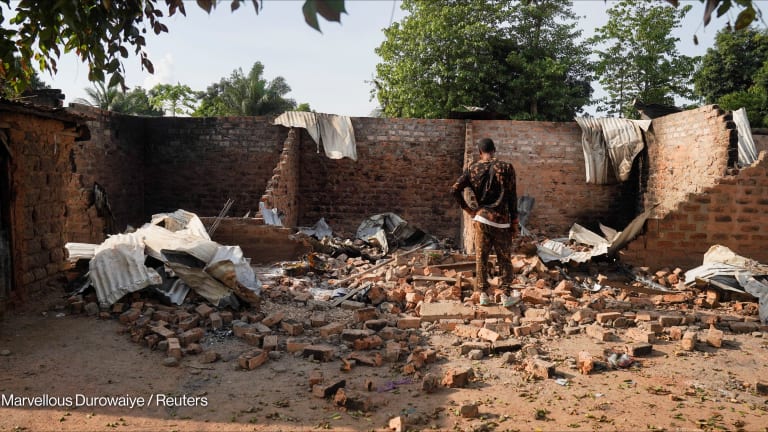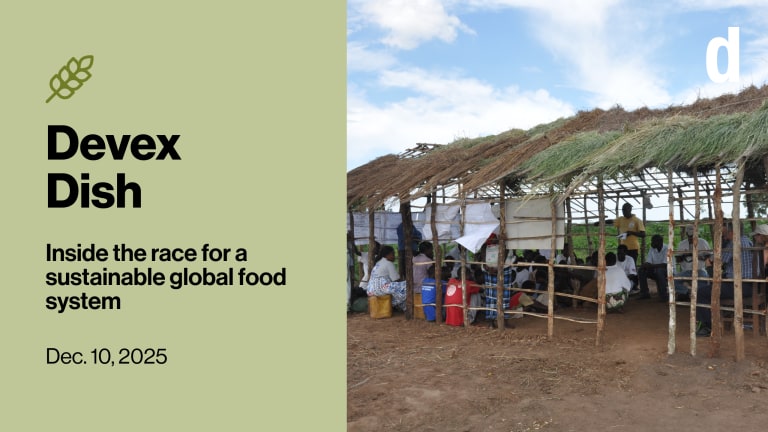
After almost two years of negotiations, the Philippine government and the Moro Islamic Liberation Front, the country’s largest militant group in Mindanao, have completed the details of the peace talks that could finally spell the end to decades of conflict in one of the country’s most impoverished regions.
Following the historic signing in Oct. 2012 of the Framework Agreement that lead out the foundations of the future peace deal, its final component — the so-called “normalization annex” — was signed on Saturday.
This milestone could truly mark a new beginning and become a catalyst for development in Mindanao, according to a local peace advocacy group.
“This is not just a welcome development. This is a milestone because this is the first of its kind when it comes to granting, hopefully, a genuine autonomy to the people considered to be a minority of the country,” Lyndee Prieto, Initiatives for International Dialogue representative, told Devex. “A milestone because there were a lot of substantive and contentious issues of which both parties have really carefully studied and negotiated well.”
The news is also a much-needed boost for the Philippines, which in the past few months has suffered crises such as a siege and hostage crisis in Zamboanga, a powerful earthquake in Bohol and of course Typhoon Haiyan, one of the strongest storms ever recorded, which killed over 6,000 people, left many more homeless and destroyed countless properties in the Visayas region in early November.
On top of that, leading international donors like the United States, the United Kingdom and Japan are just waiting for Mindanao to embrace peace so they can pour in billions of dollars in development funds for the region.
Peace pact: A way forward
Recognizing peace as a vital component in pushing for social and economic development has long been a related issue in Southeast Asia, where tensions and ethnic conflicts still thrive even today, hampering the region’s development progress.
In Myanmar, a peace initiative led by the Norwegian government is in danger of closing down and pulling out all its resources and efforts following several controversies involving key stakeholders and their “alleged” motivations in pushing for peace. A resounding issue includes the insincerity of the peace initiative seen by locals as a tool for the government to manipulate them to get what they want — a pressing concern that needs to be kept in mind in the case of the Philippines in doing things right to move forward.
Prieto said the peace pact is not only a necessary instrument to stop the violence down south, it is a way for people to have a new beginning, something the international aid community can boost.
“[The peace deal] would definitely help because we all know the Muslim region in Mindanao is one of the regions considered to be the most impoverished,” she explained. “This will hopefully go up given the peace process with the support of the international development community. It would lift the region and the country as a whole.”
Steven Rood, country director and regional adviser for local governance at the Asia Foundation — a member of the Third Party Monitoring Team overseeing the peace process — agreed, saying the international community can become the missing piece of the puzzle once the whole implementation process of the peace deal is rolled out.
“There are two kinds of things that the development community can do to help the [peace] process. First is direct support to the institutions that are set up by the process [through resources] and the second is scaling up development programs to touch more people,” he told Devex.
Rood admitted the details of the deal are yet to be implemented, but noted the conclusion of the deal itself sends a signal to the world that the Philippines is serious in its development pursuit and march toward progress. International NGOs that for years have tried and failed to set up shop in Mindanao will finally feel safe enough to carry out programs on the ground, ultimately benefitting the people.
“All of [the programs] will no longer be disrupted by war [and conflict] and therefore will be more effective. It will convince aid workers as well as the people in Muslim Mindanao that this time, it’s different. This is not a failed peace process. This is one that is going to give them benefits,” Rood said.
Long road ahead
Despite the jubilation and support of the international development community regarding the historic peace deal, Rood emphasized that this is just one step in the process, and the road to implementation and success is long and winding.
“The implementation goes in several stages. This is just one step to the whole peace process. But this is a big step, nonetheless,” he said.
The Philippine government is firm on finishing all the necessary frameworks, laws and provisions before or by the end of the current administration’s term in mid-2016, so as “not to burden the country’s next leader.”
For that to be possible, Rood said stakeholders should move quick.
The transition commission, in charge of drafting a bill creating the Bangsamoro region, will have to draft and sign the bill by June this year and send it to the Philippine Congress. The congress should be able to pass this bill into law by the end of the year to make way for a plebiscite.
After this whole legislative process, the transition authority should start performing its duties by early 2015, as it will take around 18 months to implement all the annexes and provisions in the peace deal, Rood concluded. Whether it will be done by the time the current president steps down, the odds are still up in the air.
Read more development aid news online, and subscribe to The Development Newswire to receive top international development headlines from the world’s leading donors, news sources and opinion leaders — emailed to you FREE every business day.








